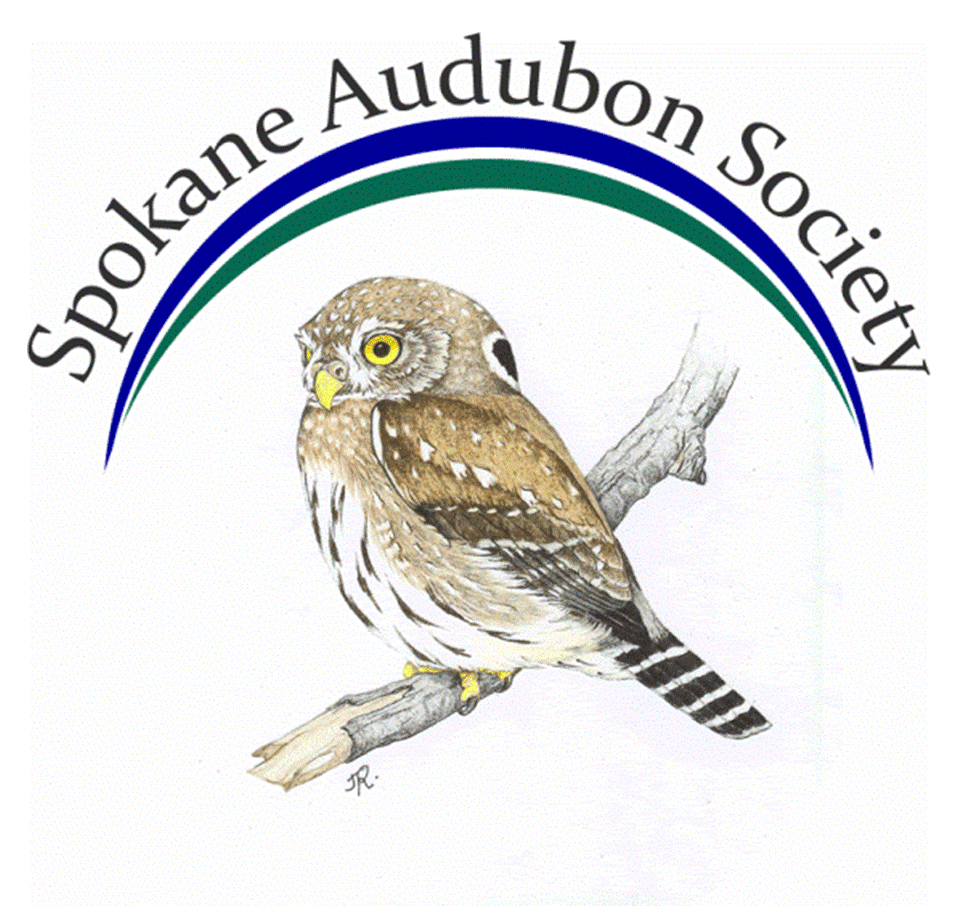The Pygmy Owl
Spokane Audubon’s Monthly Newsletter
The Pygmy Owl is produced monthly from September through June of each year. We provide our newsletter free on our website. Scroll below to locate an issue and click on the issue to open it in your browser. To get a link to our online monthly meeting, open the latest issue and the link is on the first page. Go to the Archive page for past years newsletters. For those who join our chapter, we send the newsletter directly to your email inbox.
Removing invasive species from islands and accelerating the recovery of native plants and animals around the world is the work of the Santa Cruz, California-based non-profit Island Conservation.
Heath Packard, Chief Philanthropy Officer for Island Conservation, will present examples of this work in all corners of the world, from Lehua Island, Hawai’i to Floreana Island, Galápagos.
Projects focus on restoring islands using proven conservation methods and innovative technologies to maximize biodiversity, resilient oceans, and thriving island communities.
The White-headed Woodpecker is listed in Washington as a species of concern due to its association with old-growth ponderosa pine forests. Although White-headed Woodpeckers have recently been documented inhabiting early to mid-seral managed forests, information is limited regarding their reproductive success and general ecology in these forests.
For the last 22 years, Jeff Kozma, a wildlife biologist for the Yakama Nation, has been studying the ecology of White-headed Woodpeckers in managed ponderosa pine forests along the eastern Cascades in Yakima and Kittitas Counties.
Jeff will present brief highlights from his research including nest-site characteristics, reproductive success, and nestling provisioning (i.e., who feeds the kids and what are they feeding them). He will also present a summary of findings from a long-term banding study he has been conducting since 2011, investigating adult longevity and information on juvenile dispersal from a colleague’s research.
Washington state is home to 15 species of bats, all highly beneficial by taking up the night-shift job of insect control from daytime-flying birds. Dr. Lynne Nelson of Washington State University’s College of Veterinary Medicine will discuss bat biology, ecology, health and disease. She will provide information about the bats of Washington state and their status; how to view and identify bats; and how to attract bats to your property.
Domestic cats can make wonderful pets but also have the capacity to kill birds and other wildlife, spread infectious diseases, and cause nuisances in the community. Predation by cats is the number one cause of wild bird deaths in the country. Grant Sizemore will talk about how to manage domestic cats for everyone’s benefit - birds and other wildlife, people, and cats themselves.
Birds’ sensory perception helps them navigate, find food, avoid predation, identify mates, and raise their young. Peggy O’Connell, a retired biology professor from Eastern Washington University (EWU), will discuss these fascinating adaptations.
Learn about both swans and snow geese when Martha Jordan, founder and executive director of the Northwest Swan Conservation Association, will present “Washington’s White Birds of Winter” at our September meeting.








Our March 12 meeting features a panel of local environmental group leaders discussing individual and collaborative work on issues. The panelists, who will each make brief presentations about their organization’s mission, accomplishments, and goals before a question-and-answer discussion session, are:
Ruth Gifford, executive director of Dishman Hills Conservancy, which permanently protects and manages the Dishman Hills Natural Area and ecosystem while connecting people to nature through conservation, education, recreation and stewardship.
Dave Schaub, executive director of Inland Northwest Land Conservancy, which works with the community to identify and protect special places throughout the region using legal agreements with landowners and partners to improve lands for habitat, clean water and air, native plants, and public enjoyment
Amanda Parrish, executive director of The Lands Council, which preserves and revitalizes Inland Northwest forests, water, and wildlife through advocacy, education, effective action, and community engagement;
Jule Schultz, Waterkeeper of Spokane Riverkeeper, which protects, preserves, and restores the Spokane River watershed so that wild native fish thrive, pollution is eliminated, and the community is engaged.